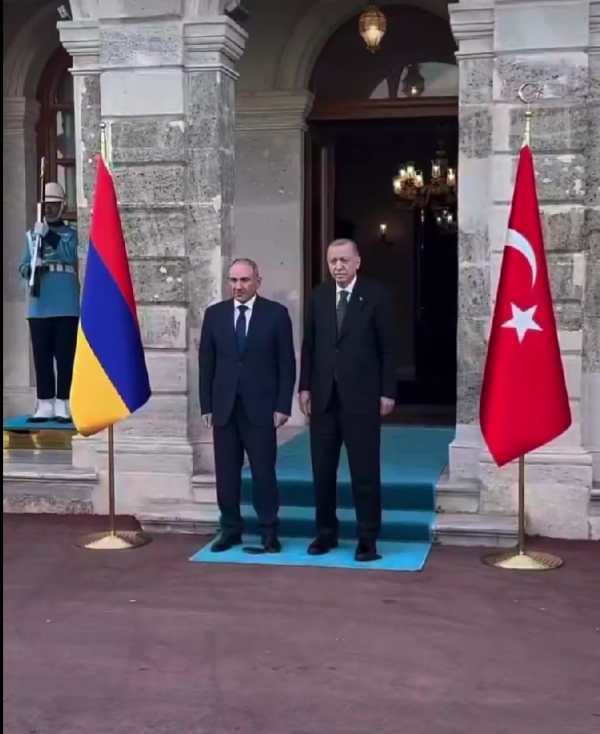As most analysts and policymakers focus on the potential normalisation of relations between Israel and key Arab states (such as Saudi Arabia and even post-Assad Syria) another pair of candidates has quietly entered the conversation: Azerbaijan and Armenia. With President Donald Trump’s return to the White House, the prospect of expanding the Abraham Accords beyond the Arab world has gained traction in U.S., Israeli, and regional policy circles.
Since March 2025, voices from pro-Azerbaijani circles within the U.S. Jewish lobby, Republican-affiliated think tanks, and Israeli analysts have advocated for Azerbaijan’s inclusion in the Accords. Some have also floated the idea of expanding the framework to include other Muslim-majority nations, such as Kazakhstan. Such developments would not be surprising, particularly in light of Azerbaijan’s close strategic relationship with Israel, encompassing cooperation in energy, security, and intelligence.
How does Armenia fit into this?
In March 2025, Armenia and Azerbaijan announced the finalisation of a draft peace deal aimed at ending decades of conflict. However, core disagreements remain. Azerbaijan has issued additional demands that Armenia considers unacceptable due to their implications for its sovereignty.
One of the most contentious issues remaining is the proposed so-called “Zangezur Corridor,” a transport link through Armenia’s southernmost province of Syunik, connecting Azerbaijan to its exclave, Nakhchivan. While Armenia has agreed to reopen regional transit routes, it rejects Baku’s demand for extraterritorial access, which would undermine Armenian sovereignty. Yerevan also opposes any Russian role in securing the corridor, citing Moscow’s past failures to act decisively.
Still, negotiations continue. In late June, Armenian Prime Minister Nikol Pashinyan made a historic visit to Türkiye and met with President Recep Tayyip Erdoğan, a clear sign of shifting regional dynamics. Since its 2020 defeat in the Second Nagorno Karabakh War, Armenia’s foreign policy has shifted dramatically. It now prioritises normalisation with Türkiye and Azerbaijan as a condition for implementing the ambitious “Crossroads of Peace” transit and integration initiative.
Yerevan is also pursuing a strategic realignment away from Russia, which is increasingly viewed as an unreliable and declining power in the South Caucasus. Armenia’s efforts include deepening ties with the EU and the U.S., diversifying arms imports, reconsidering participation in Russia-led organisations, challenging Russian influence domestically, and seeking a peace agreement with Azerbaijan without Russian mediation.
In addition, Armenia is seeking to reduce its dependency on Iran and Georgia, which have long controlled Armenia’s trade and transit routes. Peace with Azerbaijan and normalisation with Türkiye could provide direct access to Central Asia, the Middle East, and the Mediterranean, offering an opportunity to diversify economically and geopolitically. However, voices in Armenia and the diaspora have raised concerns about the potential dangers of increased dependency on Türkiye.
At the same time, Trump’s administration appears increasingly interested in resolving the Armenia–Azerbaijan conflict, a long-standing regional flashpoint. For example, reports suggest that the U.S. has proposed involving American businesses in the development of the transport corridor connecting Azerbaijan to Nakhchivan through southern Armenia, offering this as a form of security assurance for Yerevan, modelled in part on the Ukraine rare earths deal. Additional reporting indicates that an American-Armenian organisation may be considered to manage the infrastructure along the route.
In this context, the growing prospects for peace could come with the potential expansion of the Abraham Accords into the South Caucasus. The Trump administration has a precedent to build on: in September 2020, it brokered a normalisation agreement between Serbia and Kosovo, which included provisions benefiting Israel. Serbia agreed to move its embassy to Jerusalem, while Kosovo and Israel agreed to mutually recognise each other. Though not part of the Abraham Accords – signed a few weeks later – the deal demonstrated Washington’s ability to steer regional dynamics through intersecting negotiations.
Initially designed to normalise relations between Israel and Arab states, the Accords are increasingly seen as a flexible geopolitical framework. While Muslim-majority countries like the secular Central Asian nations are often discussed as next steps, the U.S. State Department has clarified that the initiative seeks to “promote interfaith and intercultural dialogue to advance a culture of peace among the three Abrahamic religions and all humanity.” This definition opens the door for Christian-majority nations like Armenia to participate. This became clearer when U.S. special envoy Steve Witkoff suggested in an interview that Armenia and Azerbaijan might join the Abraham Accords.
Unlike Azerbaijan, Armenia’s relationship with Israel is strained. Israel has long supplied advanced weapons to Azerbaijan, including during the 2020 Nagorno Karabakh War. Reflecting these tensions, Armenia formally recognised the State of Palestine in June 2024, a move widely seen as a diplomatic signal of discontent toward Israel.
Nonetheless, both Armenia and Azerbaijan recognise Israel, creating a formal baseline for engagement. More importantly, the Abraham Accords are no longer just about normalisation. They are about regional integration, economic cooperation, and geopolitical alignment.
Projects like the India–Middle East–Europe Economic Corridor (IMEC) align closely with the spirit of the Accords. The South Caucasus is emerging as a strategic bridge between Europe, Central Asia, and the Middle East, and the inclusion of Armenia and Azerbaijan could significantly expand the Accord’s geographic and political reach.
A peace treaty between Armenia and Azerbaijan, backed by the United States and followed by their inclusion in the Abraham Accords, would represent a strategic gain for almost all key actors involved.
For Armenia, it offers a pathway to improve relations with Israel and deepen ties with the United States, while accelerating its geopolitical shift away from Russia and Iran. Moreover, through improved access to regional infrastructure and trade routes, Armenia could expand its economic integration with the West and the broader Middle East. The involvement of the U.S. and Israel could also serve as a counterbalance to the rising Turkish influence in the South Caucasus, strengthening Armenia’s security position without reverting to old dependencies.
For Azerbaijan, inclusion in the Abraham Accords would consolidate its partnership with Israel and align it more closely with Washington, offering leverage in its ongoing competition with Iran and, potentially, Russia. It would also elevate Azerbaijan’s international profile as a reliable transit hub between Europe, Central Asia, and the Middle East, a core ambition of Baku’s energy and connectivity strategy.
The United States, under President Trump, could claim a significant foreign policy success early in his second term by resolving a regional conflict and reshaping the South Caucasus around a U.S.-led framework. In doing so, Washington would increase its influence in a region critical to Eurasian energy and transit corridors, as well as China’s strategic projects like the Middle Corridor.
From Israel’s perspective, the expansion of the Abraham Accords into the South Caucasus would mark a new phase in its diplomatic outreach, allowing it to build influence in a region traditionally dominated by Russia and Iran, while also counterbalancing growing Turkish presence. Closer ties with both Baku and, potentially, Yerevan would support Israel’s broader strategic posture and open new channels for security cooperation and energy diplomacy across regions such as Central Asia.
The potential inclusion of Armenia and Azerbaijan in the Abraham Accords would mark a significant evolution of the initiative, shifting it from a framework focused primarily on Arab-Israeli normalisation to one that reshapes regional dynamics across the broader Eurasian landscape. As peace negotiations progress and global power centres reposition, the South Caucasus could emerge as a pivotal arena for U.S.-backed diplomacy, interconnectivity, and strategic realignment, linking Europe, the Middle East, and Central Asia in a new geopolitical architecture.


